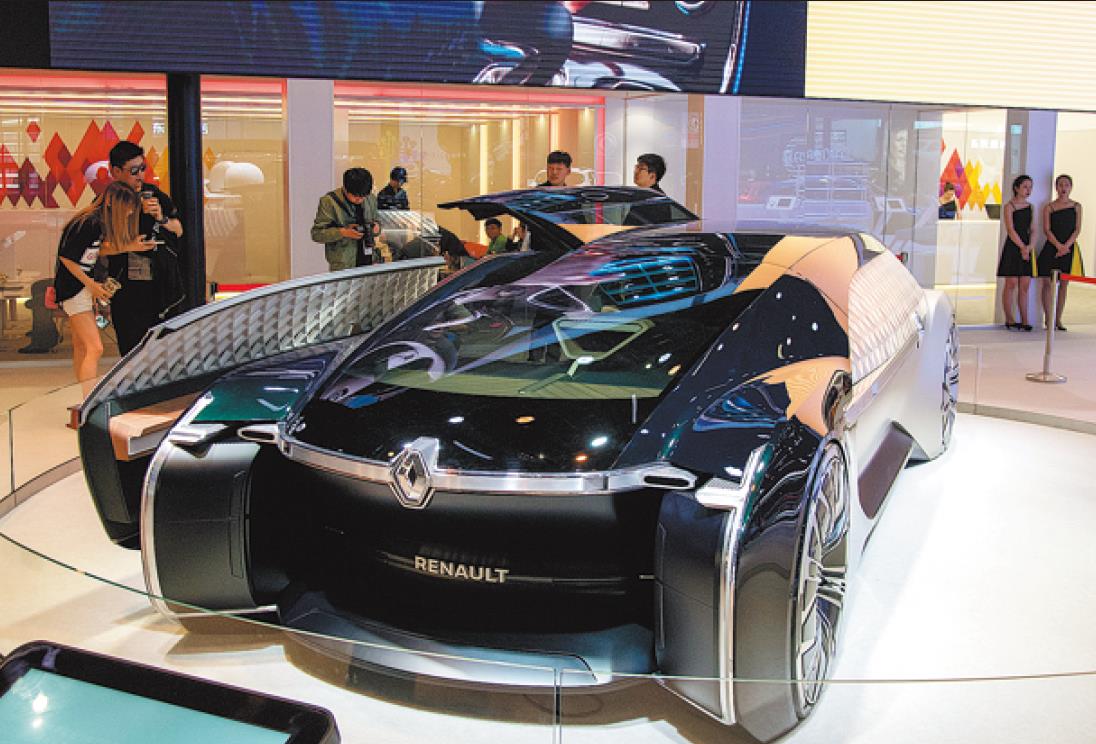Renault puts brakes on gasoline passenger cars in world's largest auto market


French carmaker Renault will stop production of gasoline passenger vehicles in China and concentrate its efforts to explore opportunities in the segments of light commercial vehicles and electric cars.
The carmaker said on Tuesday that it will sell its 50 percent stake in its Chinese joint venture Dongfeng Renault to its partner Dongfeng, which will end the six-year partnership after it didn't succeed in its attempt to secure a foothold in the competitive Chinese market.
Renault promised to provide aftersales service for its 300,000 customers through its dealers as well as partners within the Renault-Nissan alliance.
Dongfeng Renault was approved in late 2013 and started production in 2016. It produces three SUVs and one electric car at a plant in Wuhan, Hubei province.
The joint venture's sales peaked in 2017 with 72,200 vehicles sold, but have since fallen sharply. Last year, sales were just 18,000 in the country, a drop in the ocean of China's annual 23-million passenger car market. In the first three months this year, its sales totaled 663.
Francois Provost, Renault's senior vice-president and chairman of its China operations, was confident the company's cars excel in design and quality, but its short history in China has affected its popularity.
"The size of our share is low because we are a new brand in China. A major challenge for us is low brand awareness, so we don't have enough inflow of customers to our showrooms," Provost told China Daily at a car launch event late last year.
Renault had thus planned to avoid confrontation with Volkswagen and Toyota but develop its niche following.
Now, however, the carmaker is retreating from the whole gasoline passenger vehicle market, saying further development for the sector will be detailed later within a future new mid-term plan.
"We are opening a new chapter in China. We will concentrate on electric vehicles and light commercial vehicles, the two main drivers for future clean mobility, and more efficiently leverage our relationship with Nissan," Provost said.
Renault expects China's light commercial vehicle market to grow and decides to explore its potential with its joint venture with Chinese carmaker Brilliance and exports China-made vehicles into overseas markets.
The company said Renault Brilliance Jinbei, launched in December 2017, is a "sword arm" for its light commercial vehicle business in China, where 3.3 million such vehicles were sold in 2019.
Jinbei has 1.5 million customers in China and its sales hit close to 162,000 in 2019. Renault said it is helping the joint venture to modernize Jinbei models and will expand its lineup with five core models by 2023.
The budding electric car segment will be another pillar of Renault's new era in the country.
Last year, around 860,000 electric vehicles were sold in China, which has been the world's largest market for such vehicles since 2015. Renault expects electric car sales to grow from 5 percent in China now to reach 25 percent by 2030.
Renault has sold close to 270,000 electric vehicles in the world since 2011. The company said it will reinforce its partnership eGT with Nissan and Dongfeng.
It is also a shareholder of JAC Motors' new energy vehicle arm, which was established in 2015. It is expected to have four models in the market, covering 45 percent of the segments.
Renault is one of the largest and oldest carmakers in Europe. It has 40 manufacturing sites globally, with 3.8 million vehicles sold last year.




































